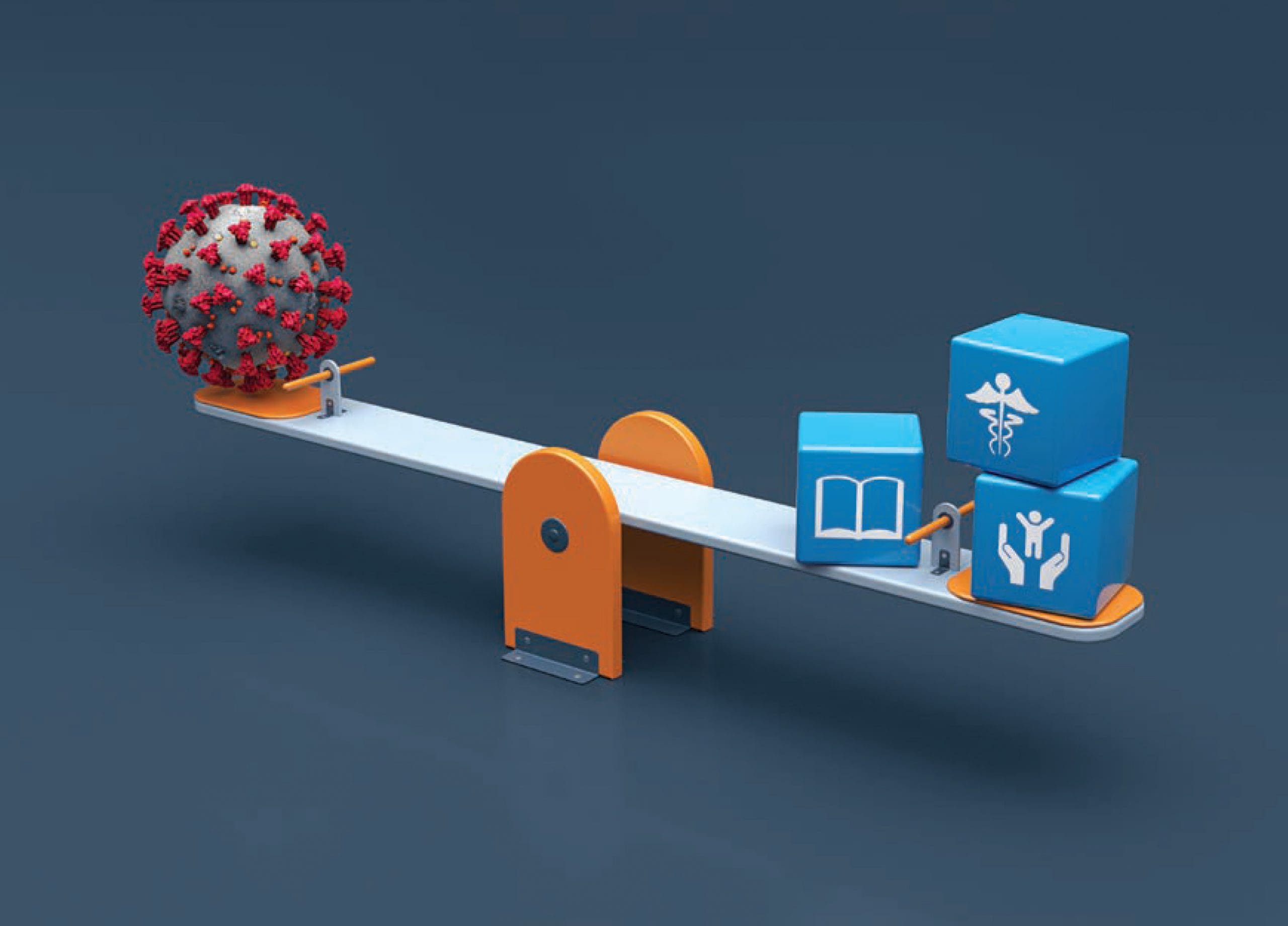A Healthier Tomorrow – COVID-19 – Weighing the Risks

A Healthier Tomorrow – COVID-19 – Weighing the Risks
Imagine a Healthier Tomorrow
By Alison H. Page
Are we all tired of thinking about COVID-19? Yes. Do we all want to just stop thinking about COVID-19? Yes. Unfortunately, that is not an option. In health care, our job is to stay focused on health and wellness and do what we can to help you be as healthy as possible. Providing you with information you can use to make decisions in your life is what we do. So here we go.
What do we know, and what do we not know about COVID-19? We know a lot. The facts are mounting, and new research is coming out daily. But there is still so much we do not know.
We know that COVID-19 is a dangerous virus. Over 580,000 people in the US have died in the past year from the disease; that is more than 10X as many people as die each year from influenza. Interestingly, the past year has seen a record low number of deaths from influenza. Perhaps this is due to public health measures taken to slow the spread of COVID-19, or perhaps more vulnerable people died of COVID instead. We don’t know.
We know that the vaccines developed to fight COVID-19 are amazingly effective. There are two types of vaccines available. The mRNA vaccines (Pfizer and Moderna) inject a synthetically created fragment of the RNA sequence of the virus to spur an immune response. The Johnson & Johnson vaccine uses the more traditional method of injecting a weakened or harmless version of the actual virus to stimulate an immune response.
We don’t know everything there is to know about the long-term effects of vaccination. There just isn’t enough data. We do know that mRNA vaccines are proving to be very safe, so far. We know that they do not affect or reprogram DNA inside the cell. This misconception was circulated as the COVID-19 mRNA vaccines came to public prominence and is a debunked conspiracy theory. We know more about the traditional method of vaccine production used for the Johnson & Johnson vaccine. So, if you are hesitant to go with the mRNA vaccines, J&J may be a better choice for you.
We know that many people are getting vaccinated. As of this week, close to 35% of all people in the US are vaccinated; 43% of people over age 18, and 71% of people over age 65. We know some are choosing not to get vaccinated either because they are unsure of this vaccine, or they do not believe in vaccines in general.
We also know that it is likely we will need to get “booster shots” as a follow-up to the initial vaccination. This is because as the virus spreads it mutates. The more the virus mutates the less effective the initial vaccine is. Moderna just announced the booster vaccine they have developed will be very effective. We may be chasing this virus as it mutates for a while until the entire world is able to quell the spread of infection.
Here is the kicker. We do not know the long-term effects of having COVID-19. There just is simply not enough data yet.
We do know a condition, colloquially known as “long Covid,” is becoming more prevalent. This includes people who have had COVID, even mild cases, who then develop symptoms including chest pain, difficulty breathing and trouble thinking clearly. Older Americans, women and people who are obese appear to have a higher risk of developing long Covid.
Worst of all, we suspect, as a result of research just released last week by Appalachian State University, that there can be long-term effects to your body from having COVID-19, even if you had only a mild or asymptomatic case. The research team found that the virus may have detrimental effects to arteries throughout the body, including in the carotid artery which supplies the brain with blood. Increased stiffness of arteries in particular was found in young adults, which may impact heart health, and can also be important for other populations who may have had severe cases of the virus. This means that young, healthy adults with mild COVID-19 symptoms may increase their risk of cardiovascular complications which may continue for some time after COVID-19 infection. Finally, most concerning, is that we have very little information regarding the long-term effects of the virus on children. We just don’t know.
To ensure a healthier tomorrow, we all need to wrap our heads around what we know and what we don’t know, and then weigh the risks and benefits of vaccination versus the risk of disease, for ourselves, for our children, and for the rest of society.
